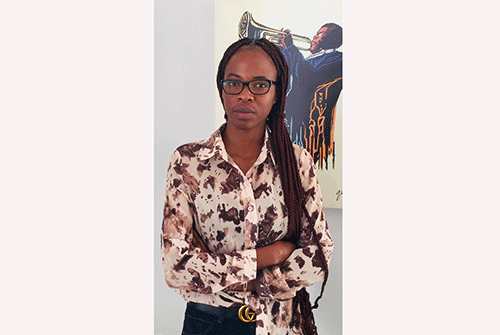Diana Mwanyangapo
Informal settlements include any form of housing or settlement that is illegal and falls outside of government control or regulation.
Those settlements are mostly looked at as shelters for the disadvantaged people, mostly owned by hardworking people or those who are working for a better tomorrow, this is mostly their starting point.
These places are mostly, if not for all of us, where life starts for us in the cities, especially to us students, they become our homes, sometimes with no electricity, proper toilets, better service, poor gravel roads or one has to walk a long distance to go and fetch water, in order to make it to campus the next day.
People in these communities especially parents work hard to put bread on the table, some do it as street vendors or security guards, just for them to give us transport money to get to school, to receive the education that we want, to either become doctors or teachers, however, one of the saddest truths is that once we are educated, we do not look at what made us become who we are, we neglect the place and refer it as the place for the poor or needy people. Graduates are therefore unlikely to return to those places.
Most people with good professions do not go back to those places because of the living condition such as no streetlights, proper roads, poor network, far shopping centres, and no water facilities. It would be helpful if the municipality tries to provide proper roads, electricity, better plots, streetlights, build some shopping centres and provide water facilities.
In this way, people will remain in those places and turn them into a better society.
It is estimated by the City of Windhoek that the number of people living in shacks has increased from 80 000 in 2011 to 160 000 people at present, meaning that the population in the informal settlement is increasing.
Mostly, informal settlements are located at the peripheries of formal towns, making commuting times costly and time-consuming as people have to travel long distances to get on gravel roads for transport that is why it will be more helpful if they are to be provided with better roads.
Although residents of informal areas are poorer than other urbanites, shacks fitted with DSTV dishes and cars parked in their backyard reflect the relative affluence of many shack dwellers however, many shack residents have the means to build with bricks if they were allowed to do so.
In most cases, after getting the profession, we would want to move to formal settlements without taking care of where we came from, the place that made us who we are.
The question is who is going to develop that community for us? Instead, we chose to live in the formal settlements, supporting street vendors becomes unhygienic not considering the fact that it is their money, which took us to school.
We should try and upgrade such societies to the same standard as the places that we will want to move to, however, due to some reasons such as higher criminal activities, insufficient facilities and proper services, we would want to move but how about building non-flushing toilets for them as these people’s lack of hygiene has considerable negative impacts on their safety and health, for example, women face safety risks when obliged to use the bush at night and defecate on open ground are the cause of many illnesses, especially for children.
It is unsafe at night and unhygienic when it comes to diseases such as cholera, dysentery and typhoid. Imagine how many doctors, teachers, pilots and other people with good professions started from such places.
What if they did something to develop those areas? It could have been a better place from now. This is a strong indicator of the profound negative impact of these sanitary circumstances on informal settlement residents, adding an additional burden to the already poor and vulnerable.



